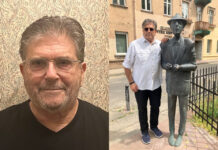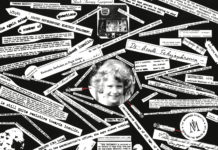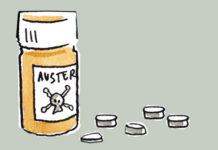Context and Care vs. Isolate and Control: An Interview on the Dilemmas of Global...
MIA’s Ayurdhi Dhar explores with Arthur Kleinman how healthcare systems often overlook personal stories, focusing on treating diseases rather than individuals. Discover why this renowned Harvard psychiatrist and medical anthropologist believes in restoring humanity to medicine.
The Psychological Humanities Manifesto: An Interview with Mark Freeman
Justin Karter interviews narrative and philosophical psychologist Mark Freeman about his vision for the future of psychology.
Laura Van Tosh: The Life of a Psychiatric Survivor Activist
Laura Van Tosh has been a leader in psychiatric survivor circles for 40 years, working at local, state and national levels.
Trusting People as Experts of Themselves: Sera Davidow on the Wildflower Peer Support Line
Sera Davidow is a filmmaker, activist, advocate, author, and mother of two very busy kids. As a survivor of physical, sexual, and emotional abuse...
Changing Narratives: Reflecting on Mad in America’s Mission and Work
For our 200th podcast interview, we are joined by members of MIA staff to reflect on Mad in America's mission and work over the last decade.
Emotional CPR: Heart-Centered Peer Support
Two National Empowerment Center leaders discuss eCPR, a process for helping youth—or anyone—through an emotional crisis using three simple steps.
Survivorship, Resistance, and Connection: An Interview with Dorothy Dundas
An interview with activist Dorothy Dundas about her connection to the psychiatric survivor movement from the 1970s to today.
New Perspectives on Eating Disorders: An Interview with Shira Collings
“Eating disorder recovery is about rejecting oppressive values.” Therapist Shira Collings discusses person-centered approaches to dealing with food-related challenges in youth.
The Effects of Antidepressant Exposure Across Generations: An Interview with Dr. Vance Trudeau
Dr. Vance Trudeau discusses his study's finding that antidepressants may have far-reaching, adverse effects that last up to three generations.
Bringing Integrative Community Therapy to Pittsburgh: An Interview with Alice and Kenneth Thompson
Father and daughter Ken and Alice Thompson run the Visible Hands Collaborative, bringing Integrative Community Therapy to the US.
“Getting to the Root Causes of Suffering”: An Interview with Patricia Rush, M.D.
Dr. Rush talks about the THEN Center and the links between childhood trauma, inequality, human development, and chronic illness.
Exploding Myths About Schizophrenia: An Interview with Courtenay Harding
The Vermont Longitudinal Study, led by Courtenay Harding, belied conventional beliefs about schizophrenia by showing remarkably good outcomes for patients discharged in the 1950s and '60s.
Poverty, Pathology and Pills: An Interview with Dr. Felicity Thomas and Dr. Richard Byng
MIA’s Tim Beck interviews Dr. Felicity Thomas and Dr. Richard Byng about their report, Poverty, Pathology, and Pills, which situates increasing rates of mental health diagnosis and psychiatric prescriptions within socioeconomic and policy trends across the UK.
Critical Psychology for a Better Society: An Interview with Sebastienne Grant
Micah Ingle interviews Sebastienne Grant about her work developing a critical psychology program to reimagine and restructure social systems.
MDMA Assisted Psychotherapy and Therapeutic Humility: An Interview with Marcela Ot’alora
Richard Sears interviews Marcella Ot’alora, therapist and principal investigator for MAPS MDMA-assisted psychotherapy.
Psychology and Poverty: An Interview with APA President Rosie Phillips Davis
MIA’s Gavin Crowell-Williamson interviews psychologist Rosie Phillips Davis about her presidential initiative to address deep poverty.
Our Medical System Protects Wrongdoers and Punishes Whistleblowers: An Interview with Carl Elliott
MIA’s Ayurdhi Dhar interviews Carl Elliott about scandals in psychiatry and the challenges faced by whistleblowers.
Exploring the Fault Lines in Mental Health Discourse: An Interview with Psychologist Justin Karter
Justin Karter discusses his journey to Mad in America, competing models of mental health, and how we navigate these stories in psychotherapy.
Chemicals Have Consequences—Antidepressants and Pregnancy: An Interview With Adam Urato, MD
Adam joins us to discuss what we do and don’t know about the effects of antidepressants on babies and mothers and the importance of counselling in order to aid families in making important decisions about pharmaceutical drug use.
Why Does a Parent Medicate a Child? An Interview with My Mother
When Brooke Siem was 15 years old, her father died. Her mother, Dee Barbash, sought help for her daughter that led to a prescription for a psychiatric drug. In this interview, they look back on that fateful decision.
“I Found My Lion’s Roar”: Ro Speight on Combining Peer Support and Open Dialogue
MIA's Ana Florence interviews recovery advocate Ro Speight about her journey from receiving Peer Support to working as a facilitator in Peer Partnered Open Dialogue.
Psychedelics, Transformative Experiences and Healing: An Interview with Katrina Michelle
Richard Sears interviews transpersonal psychologist Katrina Michelle about harm reduction practices with psychedelics in therapy.
Where Western Medicine Meets Indigenous Healing: An Interview with Anthropologist Ian Puppe
MIA's Micah Ingle interviews the anthropologist Ian Puppe on how the imposition of psychiatric treatments can lead to harmful iatrogenic effects with Indigenous peoples.
Cured: A Memoir—Sarah Fay on Giving Everyone the Chance to Heal
Author Sarah Fay joins us to discuss why "cured" is such a seldom-used word in psychiatry.
Beyond Paternalism or Abandonment in Mental Health Care: An Interview with Neil Gong
Neil Gong exposes the false choice in mental health policy between tolerant containment for the poor and paternalistic surveillance for the rich.

































